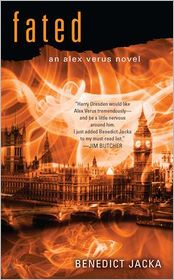There are two main power blocs within mage society – Light mages and Dark mages. Mages who don’t side with either are called independent or unaligned. Of the two factions, the Light mages are by far the more organised.
Dark Is Not Evil, Light Is Not Good
This is probably the most common misconception amongst newcomers to the magical world, so it’s worth getting it out of the way first. Light mages are not necessarily good people, for reasons that should be obvious. Calling yourself a ‘Light mage’ doesn’t make you a servant of light any more than calling yourself a ‘good person’ makes you good. Even if they were originally set up as a bastion of goodness to stand against evil (which mage historians argue about), the Light faction is an organisation, not a status. Old members leave, new members join. Light mages have existed for thousands of years and their society has had time to evolve a very long way.
Asking whether modern Light mages are good is a lot like asking whether your country’s government is good – it’s a very simple question with a very complicated answer. Some people will say yes, a lot will say no, and in most cases the answer you get will tell you more about the person you’re talking to than about the Light Council. The Council is very large and very powerful and like all large powerful organisations it has a lot of enemies, many of whom hate it for completely unjustified reasons. Others hate it for completely justified reasons. It depends on the history.
In terms of alignment, a better way to think of the Light mages as opposed to their Dark counterparts is as order vs chaos. The Council and Light mages as a whole stand for order. They effectively run the magical world – there’s no other body with anywhere near the combined power and influence of the Council, meaning that any kind of governmental functions fall to the Council by default. The Light Council are the primary enforcers of the Concord.
The flip side of this is that since the Light Council run the magical world, mages often join the Light faction not because they believe in any of its ideals but for the benefits it can bring. In a one-party state, you have to work with the party to get anything done. Over time this has increased to the point where it’s by far the most common reason for mages to join the Council.
The Council
The phrases ‘Light mages’, ‘the Council’, and ‘the Light Council’ get thrown around a lot, often referring to the same thing.
The Light Council is the collective decision-making body of the Light mages of Britain, made up out of (currently) thirteen mages. Six are non-voting members, known as the Junior Council, and seven are voting members, known as the Senior Council. The Senior Council have (at least theoretically) total authority over all mages in the country.
Beneath the Senior and Junior Council are layers of administration and bureaucracy that take orders from the Council and carry those orders out. These administrative arms and lower-ranking members are the face of the Council, and the ones that other people actually meet. Confusingly, these people are also called the ‘Council’. In practice when mages say ‘the Council’ they tend to mean both the Light Council and everyone who works under it, in the same way that when people say the ‘British Government’ they can mean the Cabinet, the Civil Service, the people in between, or all of them at once.
Other mages tend to see the Council as monolithic, but it really isn’t. There are dozens of factions within the Council and they spend far more time arguing amongst themselves than they do enforcing their will on other mages. It takes a significant external threat to get the Council to unite, and even then the factions are almost guaranteed to disagree on whether it counts as a threat or not.
Life as a Light Mage
Life as a Light mage is generally comfortable. Being a Light mage doesn’t automatically give you wealth and luxury and safety, but it gives you access to the contacts that you can use to get all those things. Light mages rarely have to take risks or work a day job. They tend to live affluent lives, free to spend their time socialising, researching, romancing, making money, training apprentices, or whatever else they feel like doing.
This does however come with a price: as a Light mage you have to play politics. Getting what you want as a Light mage usually involves dealing with another Light mage, and that mage will want something back. Light mages have to network and make contacts, which means spending a lot of time kissing ass. It also means accepting the authority of the Council and fitting in with other Light mages’ social norms. Light mages who rock the boat quickly find themselves left out in the cold.
Some Light mages try to deal with this by accumulating political power, associating themselves with a Council faction or otherwise making themselves important enough to have a say over their destiny. This gives them more leverage, but comes with its own risks: while rank-and-file Light mages live fairly safe lives, Light mages who involve themselves in the Council’s political games do not. Conflicts over power among Light mages are more subtle than among Dark ones, but the cost of losing can be just as high.



